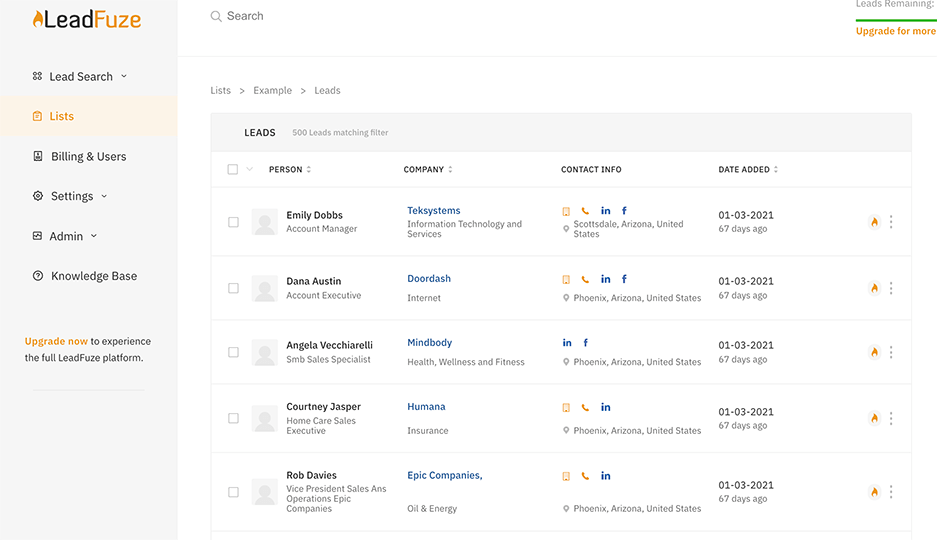If you’re like most business owners, you’re always looking for new and effective ways to grow your business. And if you’re not using permission based marketing, then you could be missing out on a great opportunity!
Permission based marketing is an excellent way to collect data from customers and use it to improve your products or services. It’s also a great way to build relationships with customers and create loyalty among them. So how can you get started with permission based marketing? Here is everything you need to know:
What is Permission Based Marketing?
The term “permission” refers to the consumer’s choice to opt into receiving communications from a company.
The concept of permission-based email marketing was popularized by marketer and author, Seth Godin. In his book, “Permission Marketing: Turning Strangers into Friends, and Friend into Customers,” Seth explains how marketing should be based on consumer choice. Marketers should therefore strive to understand and cater their marketing efforts to the interests of the people they are trying to reach.
When customers agree to receive email marketing, businesses are able to better tailor their messaging to the interests of their customers.
You’ve given a company permission to contact you by signing up for one of their programs. If you signed up for a rewards program at your favorite coffee shop, it’s because you enjoy their coffee and thought the rewards you earned for buying drinks were a good deal. You’ve given the store the right to call you.
By providing your email addresses, you agree to receive other relevant marketing content material. This is also known as “permission-based” email marketing and is a way for companies to build trust with their customers.
These situations are where customers provide their contact information in exchange for a benefit, which is the foundation of inbound marketing.
Businesses use permission-based marketing strategies to incentivize customers to buy their products.
Non-Permission Based Marketing
Unsolicited or non-consent-based advertising is any ads or marketing materials sent without the recipient’s permission.
Sending emails to attendees of conferences you sponsored, or to subscribers of your blog, would be considered non-permission-based email marketing.
The best way to build rapport with your subscribers is by first gaining their trust. You can do this by only sending them marketing messages that they’ve explicitly agreed to receive. Otherwise, you risk annoying them and losing them as customers.
Examples of Permission-Based Marketing
To give you an idea of what a real-world example of Permission-Based Marketing might look like, here are some examples of companies doing it right:
Webinars
One way to subtly get permission to send marketing emails to your prospects is by hosting a webinar.
The best software for hosting webinars is, of course, the ever-popular, easy-to-use, and well-known.
Setting up a landing page for a webinar is easier than creating a whitepaper.
Savvy brands use the power of education through webinar marketing to win over new customers.
Webinars hosted by companies like Unbounce are a great resource for simplifying the sometimes complex world of landing pages.
They have hosted a number of interesting and useful webinars that have brought together many experts in marketing.
What a fantastic way to provide the best customer service?
Opt-In Forms
Opt-in forms are a common feature on blogs and landing pages that are used to collect email addresses.
They abide by the rules of email marketing campaigns.
Confirm customer interest level by adding an additional step to the email subscription opt-in process with the double opt-in feature in EngageBay.
Double-opt-in is a feature that allows you to confirm a customer’s interest in receiving your emails.
What’s in it for the customer if they subscribe to your opt-in form? They gain access to your lead magnet, which could be an eBook, training video, free email course, or free trial. By subscribing, they also agree to receive emails from you with information, promotional offers, and news.
It lets subscribers know what type of email they can expect from you.
On most websites, the subscribe button will appear somewhere on the page with a catchy call-to-action such as “Subscribe here” or “Get on our email list”.
Visitors to your website have certain expectations. An opt-in campaign tells them exactly what to expect before they even enter your email.
This would prevent many subscribers from unsubscribing, and would also prevent violations of the General Data Protection Regulation (GDPR) or the California Consumer Privacy Act (CCPA) — if your business is based in California.
Loyalty Cards
The concept of loyalty card programs is based on the idea of gaining permission from customers to market to them.
When customers sign up for your loyalty rewards program, they agree to share their personal information with you. This allows them to receive promotional emails from you.
The Virgin Atlantic Flying Club is one of many airlines that are using creative marketing strategies to get user permission before sending promotional offers. This helps to ensure that users are only receiving communications that they have opted-in to, and helps to avoid any potential spam complaints.
The Mileslife app helps users earn points that they can then use for their next flight.
This is an example of an airline going the extra mile.
It’s flying club (a loyalty program) allows customers to earn loyalty rewards
There are three tiers of customer loyalty cards: The Club Red Loyalty, Club Silver, and Club Gold Loyalty cards.
Each of these membership levels offers different benefits, such as priority check-in, to members who are loyal to and fly with Virgin.
The brand’s goal is to keep members using its services.
Why Permission-based Marketing is Important
Not only is it required by law to give permission to send marketing messages, but it is also the most efficient way to do so. Here’s why:
- Enhance brand reputation: Permission-based marketing is still not as common as you might think. You can instantly boost brand trust as a practitioner when there are, according to Luda Greko for ActiveTrail, “numerous companies who continue to indulge in unscrupulous practice such as purchasing mailing list lists, spamming their customers with an array of irrelevant material, and failing provide a simple unsubscribe process.” This shows that you’re acting in the best interests of your clients, not yours.
- More relevant: When customers opt into your marketing communications it’s because they are relevant to them. Kayla Carmichael says, “If you signup for Starbucks Rewards, it’s likely that you love Starbucks drinks and think that the incentive of earning points for every vanilla latte purchased is a pretty good deal.” These messages should be more relevant to the visitor so they are more useful and more engaging. Personalization is a key factor in buying decisions.
- Lower cost and higher return: However, relevancy doesn’t only translate into high TOFU metrics such as click-throughs. Relevance increases the likelihood that leads will be more open to your marketing messages and move more smoothly through the sales funnel. Companies that excel in lead nurturing are able to generate 50% more sales-ready prospects at a 33% lower price.
Conclusion
If you’re looking for an effective way to grow your business, then look no further than permission based marketing! This type of marketing allows you to collect data from customers and use it to improve your products or services. It’s also a great way to build relationships with customers and create loyalty among them.
Need Help Automating Your Sales Prospecting Process?
LeadFuze gives you all the data you need to find ideal leads, including full contact information.
Go through a variety of filters to zero in on the leads you want to reach. This is crazy specific, but you could find all the people that match the following:
- A company in the Financial Services or Banking industry
- Who have more than 10 employees
- That spend money on Adwords
- Who use Hubspot
- Who currently have job openings for marketing help
- With the role of HR Manager
- That has only been in this role for less than 1 year
Want to help contribute to future articles? Have data-backed and tactical advice to share? I’d love to hear from you!
We have over 60,000 monthly readers that would love to see it! Contact us and let's discuss your ideas!

